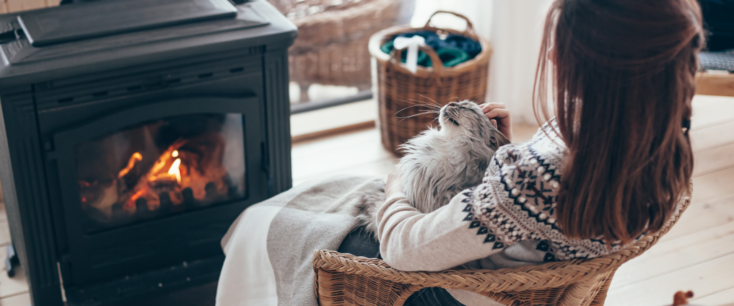Winter’s arrival brings with it a desire to snuggle up and stay warm in the comfort of our homes. Fireplaces, gas and electrical blankets, heaters, and hot water bottles become our trusted companions during these chilly months. However, it’s crucial to prioritize safety to prevent potential accidents or hazards. In this blog post, we’ll provide you with essential safety tips to ensure a cozy and secure winter season while using these popular winter warming options.
As winter arrives, we eagerly seek warmth and comfort from fireplaces, paraffin lamps, gas and electrical blankets, heaters, and hot water bottles. While these winter essentials bring coziness, it’s vital to prioritize safety to prevent accidents and keep our loved ones protected. In this blog post, we’ll provide you with essential safety tips to ensure a snug and hazard-free winter season while enjoying these popular heating options.
Fireplace Safety:
Fireplaces provide a charming ambiance, but they require careful attention. Follow these safety measures:
- Regular maintenance: Have your fireplace and chimney inspected and cleaned annually by a professional to ensure proper ventilation and remove any buildup.
- Use a fireplace screen: Install a sturdy screen in front of the fireplace to prevent sparks from flying out and causing fires.
- Safe practices: Never leave a fire unattended, and make sure it’s fully extinguished before leaving the room or going to sleep.
- Keep flammable materials away: Maintain a safe distance between flammable objects such as furniture, curtains, and decorations, and the fireplace.
Paraffin Lamp Safety:
Paraffin lamps provide a warm and cozy glow, but they require caution. Consider these safety tips:
- Stable placement: Place paraffin lamps on a stable surface, away from flammable materials and out of the reach of children and pets.
- Proper ventilation: Use paraffin lamps in well-ventilated areas to prevent the buildup of toxic fumes.
- Keep an eye on the flame: Never leave a burning paraffin lamp unattended, and extinguish it before leaving the room or going to sleep.
- Store fuel safely: Store paraffin fuel in a cool, well-ventilated area, away from heat sources or open flames.
Gas and Electrical Blanket Safety:
Gas and electrical blankets provide warmth, but they require careful handling to prevent accidents. Follow these guidelines:
- Check for damage: Before use, inspect blankets for frayed cords, exposed wires, or signs of wear and tear. Replace damaged blankets immediately.
- Adhere to instructions: Follow the manufacturer’s guidelines for proper usage, maintenance, and recommended temperature settings.
- Unplug when not in use: Always unplug blankets when you’re not around or when going to bed.
- Avoid overlapping: Layering multiple blankets can lead to overheating and potential fire hazards. Use only one blanket at a time.
Heater Safety:
Gas and electrical heaters are popular choices for winter warmth. Ensure safe usage with these precautions:
- Adequate ventilation: Use heaters in well-ventilated areas to prevent the accumulation of harmful gases. Open windows or doors to maintain proper airflow.
- Keep a safe distance: Maintain at least 1.5 meter of clearance around the heater, keeping it away from flammable objects such as curtains, furniture, or bedding.
- Regular maintenance: Have your heaters serviced annually by a qualified professional to check for faults, leaks, or malfunctions.
- Supervise usage: Never leave a heater unattended, and turn it off before leaving the room or going to sleep.
Hot Water Bottle Safety:
Hot water bottles provide soothing warmth, but they require responsible usage. Consider these safety tips:
- Inspect for damage: Before use, check for wear, leaks, or cracks. Replace damaged hot water bottles immediately.
- Proper filling technique: Fill the bottle with hot, but not boiling, water to avoid burns. Follow the manufacturer’s instructions for safe usage.
- Cover and protect: Always wrap the hot water bottle in a soft cover or towel before use to prevent direct contact with the skin and minimize the risk of burns.
As we embrace the winter season, it’s crucial to prioritize safety when using fireplaces, paraffin lamps, gas and electrical blankets, heaters, and hot water bottles. By following these essential safety tips, you can create a cozy and hazard-free environment for yourself and your loved ones.
Remember to schedule regular maintenance for fireplaces and heaters, ensuring they’re in good working condition and properly ventilated. Use screens and stable placements to prevent sparks and accidents. When using paraffin lamps, prioritize proper ventilation and safe storage of fuel. Inspect blankets and hot water bottles for damage, unplug them when not in use, and avoid overlapping blankets.
Taking these precautions (read our burn article here) will help you enjoy the warmth and comfort of winter without compromising your safety. Stay vigilant, be responsible, and create a cozy haven where you can relax and unwind with peace of mind.
Warm wishes for a safe winter season!
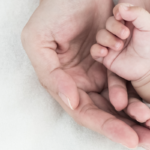
About
Welcome Founded in 2001 by Sister Catherine Rodwell, a seasoned trauma and ICU expert with extensive experience in medical evacuations across Africa, Survival® CPR is dedicated to empowering individuals with life-saving skills. Her mission is to equip parents, nannies, childminders, teachers, and employees with the knowledge and skills to respond

Scholars CPR and First Aid Course
Scholars CPR and First Aid Course Children can save lives! Our Scholars CPR and First Aid Course is tailor-made for young children from the age of 9 to 18. This vital course will enable young and older children to know how to handle an accident or emergency involving children and

Baby and Child CPR and First Aid Course
Baby & Child CPR and First Aid Course Our Baby and Child CPR and First Aid Course is tailor-made for parents. This vital course will teach a parent how to handle an accident or emergency involving babies and children. You will learn how to handle all First Aid emergencies as

Nanny and Childminder CPR and First Aid Course
Nanny / Childminder CPR & First Aid Course As a parent, it is important that the person looking after your child has the skills to handle an emergency at home. Whether your child is in the care of a nanny or childminder, it’s crucial to ensure they are equipped with

Online Baby & Child CPR and First Aid Course
Online Baby And Child CPR And First Aid Course Empower yourself to handle emergencies with our comprehensive Online Course. Perfect for new and expectant parents, grandparents, childminders, and anyone caring for young ones. Learn crucial First Aid skills and lifesaving CPR techniques led by owner and founder of Survival CPR®,
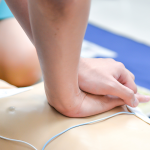
BLS (Basic Life Support) Course
Basic Life Support Course This American Heart Association Course is designed for medical professionals (physiotherapists, chiropractors, homeopaths, doctors, nurses, dentists, pharmacists etc), who are registered with the Health Professions Council of South Africa. Course Cost Members of the public are also allowed to attend this Course R 1450 Acquire10 CPD

Pre-School to High School CPR and First Aid Courses
Pre-School to High School CPR and First Aid Courses Ensure the safety of young lives with our comprehensive CPR and First Aid Course. This vital training is tailored to the unique needs of Preschool, Primary School, and High School staff, empowering them to respond effectively to accidents and medical emergencies.
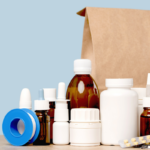
Safe Administration and Storage Of Medications In Schools
Safe Administration and Storage Of Medications In Schools Course This course is tailor-made for the school setting, educators and affiliated staff. You will also learn how to handle certain emergency situations as well as life saving CPR skills. This course is a must for all schools. Enrol now to gain
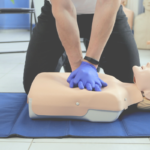
Level 1 First Aid Course
Level 1 First Aid Course Any workplace with more than ten employees must have a trained first aider and first aid supplies on the premises, according to the Occupational Health and Safety Act. We offer you a First Aid accredited Course. Course Cost accredited by HWSETA and aligned to Unit


